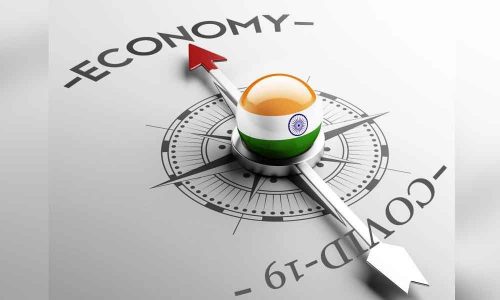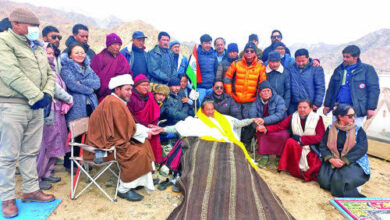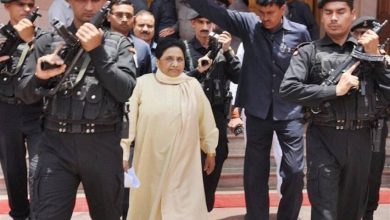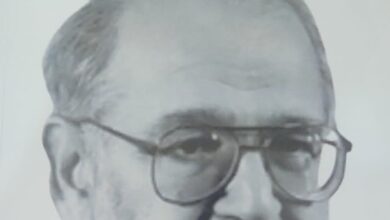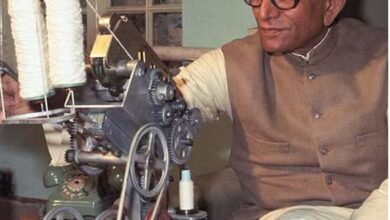Covid-19 (India): Coping with disasters is an integral part of microcredit: Nobel Laureate
Mohd Naushad Khan
The pandemic has derailed economic activities and further deepened economic slowdown. It has seriously impacted healthcare infrastructure, medical emergencies and above all the economy at large. The nature and the gravity of the pandemic can be addressed through immediate structural reforms in our economic institutions, pragmatic economic measures, viable policy along with the notion of caring economy keeping in mind our strength and weakness.
The general perception is that the government through some innovative policies can turn the challenges emanating from Covid-19 pandemic into an opportunity. Global leaders are of the view that structural reforms and some bold economic measures are the only way forward. In this regard, India should redesign its economic institutions to safeguard its interest nationally and internationally. National and international experts have shared their views on what should be done by India to turn challenges into an opportunity keeping in mind the challenges the world is facing after the pandemic.
Micro-credit pioneer and Nobel laureate Muhammad Yunus has very recently said that Covid-19 should be used by the countries to redesign their economy. On the question of what should be done by India to redesign its economy, the Nobel laureate Muhammad Yunus said, “Covid-19 pandemic has raised a genuine question. Will microcredit in India survive this huge crisis? As per our experience in Bangladesh, the answer is a firm ‘yes’. Bangladesh generally experiences cyclone and floods, destroying houses, possessions, animals, businesses, even loss of lives. But microcredit all the time bounces back. Poor people’s lives are woven with innumerable disasters. Coping with disasters is an integral part of microcredit. Grameen Bank ensured its staff to understand that microcredit is about people, not about money. Money is a means to give the people a chance to fight for their lives.”
“The pandemic has revealed another aspect which is helplessness of the people in the so-called ‘informal sector’. They comprise majority of the work force of India. With the attack of Corona Virus the income of the daily income earners has unexpectedly disappeared. Economic theory has nothing to offer to this work force in the informal sector. Grameen Bank made me to realize that economic theory went totally wrong in understanding the people outside the formal sector. It saw them as people in the waiting room. But, I look at this ‘waiting room’ as the power house of the economy. Microcredit has a greater role to play in building a people-friendly economy. It is high time to get it ready by sorting out all institutional issues,” said the Nobel Laureate.
“The crisis the world is facing gives a great opportunity for policy planners to redesign economic institutions. It was in the aftermath of the Spanish flu epidemic a hundred years ago that the world saw a new measurement of growth, and it was the Gross Domestic Product that came into being and has since then been the guiding force behind all welfare and growth strategies seen across the world. Each crisis since then has given a new dimension on which Indian and world leaders will have to think afresh and redesign their economy,” said Dr Amir Ullah, who is a Development Economist and served as Deputy Director and policy advisor to the Bill and Melinda Gates Foundation.
“This COVID 19 pandemic has resulted in one of the worst economic crisis the world has possibly ever seen. Millions have lost jobs, unemployment percentages range between 15 in the US to 25 in India. Consumption has nosedived and demands for just about all products come down sharply Airlines were shut, hotels have no customers, the entertainment sector just relied on online streaming services and sports events were all cancelled. The brunt of the crisis was felt by the informal sector and in India alone; nearly 190 million unorganized sector workers lost their livelihoods,” Dr Amir Ullah said.
Amitabh Behar, Chief Executive Officer of Oxfam (India), is a global civil society leader and an authority on tackling economic and gender inequality and building citizen participation while sharing his perception on the issue said,” Post pandemic the economy needs to be rebooted with a new vision. A vision rooted in respect for plentary boundaries and humane economy. We need to use this as an opportunity to end inequality and an economy rigged in favour of the billionaires. The new economy should be built around just use and distribution of resources.

